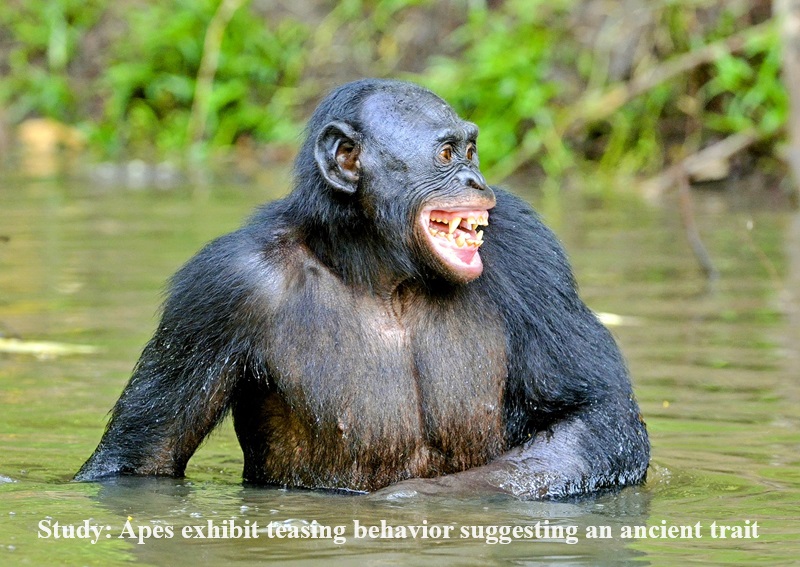
A vivacious juvenile chimpanzee playfully taps an older family member on the back, then quickly withdraws, glancing back to assess the response to his playful gesture. Not receiving an immediate reaction, the chimp, named Azibo, rolls back and delivers another tap, eventually eliciting a response. The preoccupied adult nonchalantly waves a hand in Azibo’s direction, dismissing the playful youngster, albeit temporarily.
This scenario is just one of numerous instances observed by scientists where apes engage in playful teasing, akin to young human children. The incident took place at Leipzig Zoo in Germany. Building on previous research, scientists theorize that the cognitive prerequisites for jesting likely originated in a common ancestor millions of years ago, as all four species of great apes exhibit teasing behavior. The researchers documented various playful behaviors, including offering an object only to retract it at the last moment, thwarting a counterpart from obtaining a desired item, disobeying instructions, and engaging in poking. Much of this conduct parallels that of human children, emerging as early as eight months in the most precocious individuals.
Described as existing on a continuum between regular play and aggression, playful teasing involves anticipating others’ reactions and delighting in defying expectations, as detailed in the study published in the journal Proceedings of the Royal Society B.
Lead author Isabelle Laumer, a cognitive scientist and primatologist at Germany’s Max Planck Institute of Animal Behavior, expressed surprise that this spirited teasing seldom escalated into violent encounters. Laumer noted that the adult apes responded calmly to similar behavior, highlighting the fascinating dynamics of playful interactions among apes.

Post Your Comments